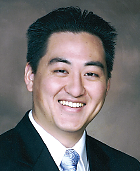Collaborating With Neurologists Adds Benefits to Patient Care

The most important thing I learned in my geriatric psychiatry fellowship was the value of collaboration with my neurology colleagues. In Boston, where the fields of cognitive and behavioral neurology were established in the mid-20th century by Dr. Norman Geschwind and colleagues, older individuals who are impaired often have a team of psychiatrists and neurologists who co-manage their conditions.
This experience has led me to reflect on the true meaning of collaborative care. As an early-career geriatric psychiatrist, I can think of no better advice than to recommend to psychiatrists in training that they learn as much neurology as possible and team up with neurologist colleagues.
Those familiar with the history of psychiatry in the 20th century will appreciate our common roots with the field of neurology. Alois Alzheimer was a psychiatrist and neuropathologist, and Sigmund Freud was a neurologist before founding psychoanalysis. I remember discussing the cultural similarities and differences between psychiatry and neurology in residency as we rotated on the neurology wards. Ultimately, our conclusions were that we had more in common than most realized, echoing the fact that all neurologists and psychiatrists are examined by the American Board of Psychiatry and Neurology. We really are two sides of the same coin, just like the concepts of “mind” and “brain.” In my patient evaluations, I now routinely ask about not just psychiatric and general medical history, but also neurological history.
Rounding with Brigham and Women’s behavioral neurologists and neuropsychiatrists, I have found that these similarities are especially noticeable in geriatric neurologic conditions, such as dementia, stroke, and seizure. Collaboration, and not just consultation, often has yielded more fruitful assessments of patients’ conditions, which has benefited not only the patients themselves, but also the clinicians.
For example, the nature of Alzheimer’s disease often crosses conventional disciplinary boundaries. We are learning that subjective cognitive concerns paired with neuropsychiatric sequelae can often herald a diagnosis of preclinical or prodromal Alzheimer’s disease. Hence, psychiatry is just as important in the beginning of the disease as it is in the end, when we are most commonly consulted to help with management.
Combining a mental status exam with a honed neurological exam has helped me better care for my geriatric patients. Given the common finding of movement disorder in older individuals who have chronic mental illness or the beginnings of dementia, the United Parkinson’s Disease Rating Scale (UPDRS) has been useful in systematically documenting the slightest parkinsonian signs and tracking them together with neurologists.
The UPDRS is the most validated instrument to document parkinsonism and has been endorsed by the Movement Disorders Society. Very easy maneuvers such as gait, finger-tapping, frontal release, and Luria sequences can all be evaluated in less than one minute and yet provide highly useful information about neurologic status. We can quickly test each lobe of the brain, just as our neurology colleagues do, to help localize lesions. I believe that the neurological exam, just like the cognitive exam, should be second nature for psychiatrists. The mind does not live in a vacuum; the brain is not divorced from the mind.
With so much recent psychiatric research involving brain imaging, I sometimes wonder why psychiatrists do not utilize imaging more in clinical care. At the very least, we should be able to have an opinion when we do see neuroimaging and have a basic understanding of how to read a scan, just as with electrocardiograms. Brain imaging takes us as close as possible to assess brain tissue.
Similarly, I have learned from my neurology colleagues the utility of evaluating cerebrospinal fluid (CSF) markers, especially when diagnosing neurodegenerative conditions. Having psychiatrists routinely perform lumbar punctures may be a stretch, but having an awareness of standardized tests for CSF, such as measurements of amyloid and tau for Alzheimer’s, can be helpful. Perhaps a larger question for my psychiatric colleagues is: What are the biomarkers for “psychiatric” diseases? Do we have any? What can we learn from our neurology colleagues?
Finally, collaborating with neurology has also opened up new career-development opportunities for me. It was sort of a “leap-of-faith” moment when it dawned on me to consider approaching neurologists for a research opportunity. However, by that time I had already collaborated with them in much clinical care of my patients and have learned over the years that “those neurologists” are actually quite enjoyable to work with. They are like cousins in the same family. We all care for the same patients and want the best for them. I have learned that neurology brings much wisdom to the psychiatry table, and I am glad to know that they feel the same way about us. ■



